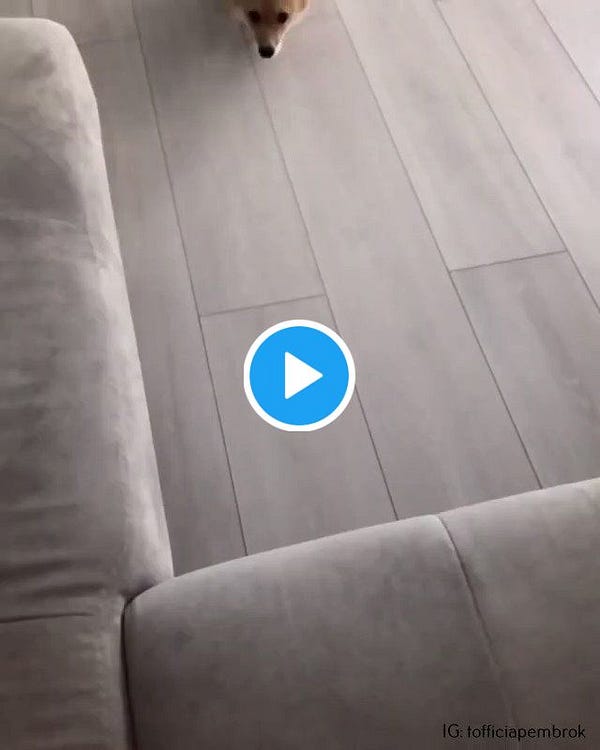The Kaizen Newsletter #25 (12/03/2019)
The three key areas I improved on to become a better manager

If you've been following my journey for a while, you already know that I've become a product manager for a few months now. However, I have to admit that I only became a "full-time" product manager very recently. My transition from project manager to product manager was a lot longer than expected since I had to onboard new project managers and offload them my projects afterwards.
And let me tell you that being able to just concentrate on doing one job really well, instead of doing multiple jobs...pretty mediocrely, was pretty nice for a change.
But nice things come to an end eventually, right?
Yup. Ya boy learned that he'll be doing some more project management for a little while. Unfortunately, things were getting hectic with some of our clients and I was pulled in to help save the day. Yay?

I definitely wasn't happy about the situation, but sometimes you gotta do whatcha gotta do, right? 🤷♂️
However, instead of being angry at the situation, I decided to look at it from a different angle. I actually thought this might be a really cool opportunity to get back into project management for a while.
Now, don't get me wrong, I already can't wait to get back into product, but I see it as a second chance. Since I was in-between two jobs for a pretty good amount of time, I felt that I wasn't able to excel in either. I was always on my feet, reacting to whichever fire I need to extinguish first.
Client screaming? 🏃♂️
Sprint planning? 🏃♂️🏃♂️
New client screaming? 🏃♂️🏃♂️🏃♂️
You get the gist of it. I was being pulled in many directions and never really got a good hold of any of them. So now, I finally have a second chance to finish what I started and close out my project manager career on a better note.
So how exactly would I make sure that everything runs smoothly this time around? I decided to concentrate on these three key areas:
Planning
Confidence
Communication
What I want to highlight is that making sure you focus on each of these areas compound, since each area spills to the next one.
If you plan well, then you are more confident and if you are more confident then you communicate better with the client.
Which then gives us something like this:
Planning → More Confidence → Better Communication → Better Planning → etc.
Planning
As a Project Manager, you can't really fix anything yourself. You're relying on your team members to get all the answers that you need, so the only thing you can really do to help is to plan.
This is where you get all the information that you need so you can ensure the client that you are meeting your timelines, or at least reasons why you will not be meeting the timelines.
This is where you try and understand what your team members are working on so that you can then translate it in business terms for the client.
This is where you set all of the required meetings necessary for the following week and prepare agendas so that you know what you will be talking about.
It's crazy, since I lacked planning a LOT initially, and only recently did I realize how important planning is since the better you plan, the better everything else will be.
Confidence
Confidence is important for a lot of different reasons. But here are the two main reasons why I feel that you should portray confidence as a manager.
If things are not going well for your team, you have to be confident that you will get things solved. You have to show your team that even if you are facing a rough patch, then you know that you can get out of it, which will hopefully inspire them to continue working hard with you.
You also want to be confident in front of the client. When things aren't going well, clients need to be reassured that everything is going to be okay, and that's why you have to inspire confidence in them. This is where planning helps a lot, since if done correctly, then you shouldn't be surprised by what the client would ask you. You can then confidently say what you are working on, how things are going to be resolved and most importantly when things are going to be fixed.
Communication
Communication is important no matter what role you have in a company, but it gets even more important when you interact with clients. As a project manager, you are the face of the company so everything and anything you say can be scrutinized.
You have to know your audience. This means that it’s not only important to know what to say, but HOW to say it depending on who you are saying it to. My background is more technical (engineering), so I tend to go a lot more in-depth when I explain a solution or a fix. If you’re speaking to a technical lead? Yes, go ahead and go into AS MUCH detail as possible. Go into the passing of parameters from one software to another. However, if you're talking to a VP? Well, keep it VERY high level. They most likely only want to know when it’s going to be fixed and don’t really care about how. So keep that in mind next time you’re in a meeting.
Tieing this up altogether
Being a good communicator means that you are transferring information to a person or a group of people in the best medium possible. So if you planned correctly, then you likely have an agenda prepared (visual communication), you also have your excel sheet ready with timelines (visual communication). If you’re confident, then you also know what to say and how to say (verbal communication) to the client. And guess what? the better you communicate to the client, the more confidence they will have in YOU meaning that they will have a better chance of leaving you to do what you need to go which then means you have more time to plan for the next call.
Now, on to the newsletter.
Weekly Favourites
🧠 Thoughts
Two thoughts from my product lead this week. I asked him how was he able to produce such quality thinking/results and translate it into beautiful concise documents.
His first answer was just by having experience. He had his own startup before and did everything on the product side. I just started as a product manager a couple of months ago, so it’s normal that I’m still on the steep learning curve. What I got from that is patience. Continue doing what I do and eventually, I’ll be able to get there.
He then added, make sure that you take the jot down ideas and strategize either early in the morning or late at night. When you’re at work, you’re constantly distracted and have no time to just think. What I got from that is that you have to make time for strategy. I need to make time to just isolate myself and think and write down my ideas.
📺 TV Shows
The Mandalorian - Watched the first three episodes of the new Star Wars TV show on Disney+ and I was pretty impressed. It’s a side story on the Mandalorians, a tribe of bounty hunters in the Star Wars universe and follows a new bounty hunter in his adventures. Also, how can you not love baby Yoda?

🐦 Tweets
Best definition of happiness I’ve seen. It’s impossible to be happy all the time. But it IS possible to decide how you react to events.
This just reminded me that I wasn’t hungry enough in 2019. Having a newsletter was a good first step, but I want more. It doesn’t necessarily need to be a side hustle, but I want to create/join a community of like-minded people. That’s one of my goals for 2020. This tweet reminded me of that.
Animal tweets are the best. Definitely, the cutest thing I’ve seen in the past week on Twitter.
This is craaaazyyyyy. Americans really take their Thanksgiving seriously 🤔
🎧 Music
Albums
Love and Compromise - Mahalia - Discovered this artist by one of the Harvard kids that Nancy and I carpooled with back to Montreal for Thanksgiving. Really chill R&B artist. Best song is What you Did ft. Ella Mai.
Songs
🙏 Shoutouts
Shoutout to my brobro, Nicholas, for taking my whole family out this Friday (even though the restaurant was pretty subpar) since he got a new job!
👋 End Note
If you want to know what I'm up to now, you can check it on my website here.
If you enjoyed the Kaizen Newsletter, then it'd be cool if you can share it with your friends. They can sign up here.
Feedback is always appreciated, so let me know what you liked and what I can improve on by replying to this email.
If you see any cool articles, links, tweets, stories or podcasts that you think are interesting, feel free to share as well at alex@alexhughsam.com






